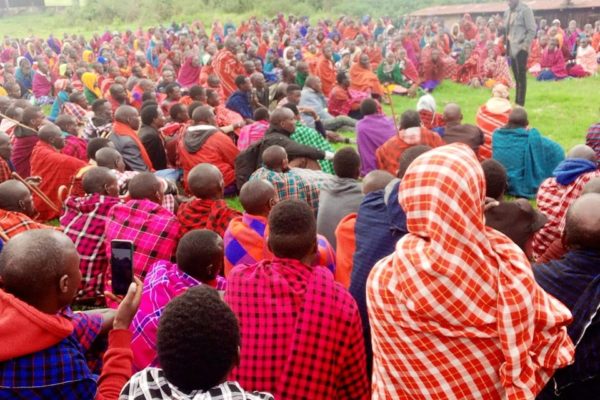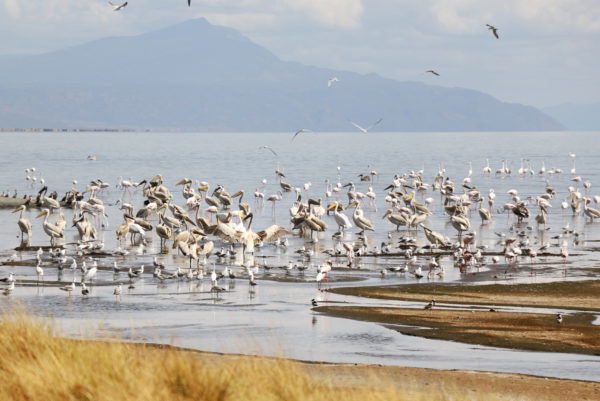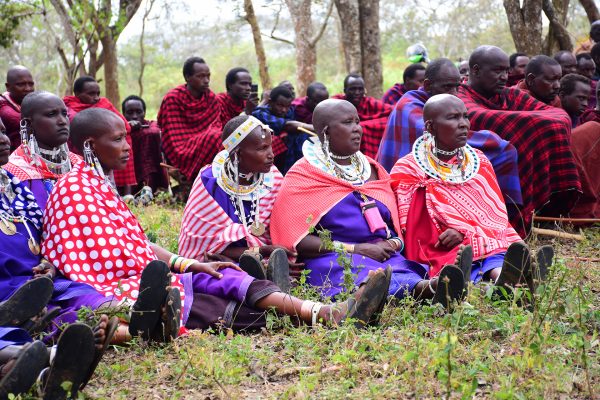During the last national assembly, ICCA Consortium Members in Tanzania discussed effective advocacy strategies to fulfill the central needs to sustain the territories of life
First published on 03/28/2022, and last updated on 07/20/2022
By Emmanuel Sulle
Regional Coordinator for East Africa and Horn of Africa, ICCA Consortium
Indigenous Peoples and local communities conserve many socially, culturally, environmentally, and spiritually critical areas in Tanzania. The central needs to sustain these territories of life are recognition, registration, and protection under appropriate legislation. During the last national assembly held on the 31st of January in Arusha, the Members of the ICCA Consortium in Tanzania discussed effective advocacy strategies to fulfill these needs.
In Tanzania, ICCA Consortium has Member organizations working on diverse issues and representing Indigenous and rural communities. The various issues range from securing pastoral communities’ land and resources rights in northern Tanzania mainland to coastal and fishing communities in both Tanzania mainland and the Zanzibar archipelago. The Consortium also has Honorary members (individuals) in Tanzania with vast experience in human rights, environmental and natural resources, social and economic issues.
During the assembly, Members identified their needs and priorities for action to support territories and areas conserved by Indigenous Peoples and local communities in Tanzania. They observed that most of their activities and programs, although different because their focus is different, have some similarities that they can harness to improve their performance at the community and national policy levels.
They have identified a few issues that need to be addressed as follows:
- Lack of coordinated and sustained processes by ICCA Consortium Members to review policies, laws, and regulatory structures governing ICCAs and secured rangelands in the country. This is a significant gap since most natural resources policies, and laws are currently under different review processes. Without coordinated efforts by the ICCA Consortium Members, new or revised policies and laws may likely come up with unfavorable provisions for ICCAs.
- Documentation of ICCAs in the country is inadequate. Members discussed the need to document good cases of ICCAs in the country. They emphasized that supporting communities to submit information regarding their ICCAs to the ICCA Registry should be part of the documentation process.
- There are negative narratives about pastoralists and pastoralism in general. Members stressed the need to work on changing narratives about pastoralist and Indigenous communities in Tanzania.
Moving forward
Members in Tanzania have committed themselves to create synergies and complementarities in their programs and activities to strengthen their collaboration and impact over the next few years. They agreed to do the following:
- Create a national umbrella network, ICCAs network in Tanzania. By having a recognized network, Members will better understand what their fellow Members are doing, what new Members bring on board, and harness the Indigenous knowledge and skills possessed by diverse communities they are working with.
- Invest in research activities, research findings dissemination, and evidence-based advocacy. Strong research evidence empowers communities to make their cause visible and stand up for their interests and rights while carrying out their responsibilities effectively.
- Support capacity-building efforts for communities because, as ICCA Consortium Members, they have a lot of resources to use to train communities on topics such as self-strengthening processes (SSPs) for territories or areas conserved by Indigenous Peoples or local communities– abbreviated as ‘ICCAs.’ Additional training could target ways in which could effectively respond to crises, including environmental, economic, cultural and political crises. This is important because of the recent Covid-19 pandemic and the ever-increasing climate change impacts.
- Scale up the work done by ICCA Members and partners; and improve and expand the concept of ICCAs at the national level. Members highlighted and appreciated lots of work done by UCRT, TNRF, Mwambao, PWC, ALAPA as ICCA Consortium Members in Tanzania but stressed the need to have a national ICCA network in Tanzania. Members believe the new ICCA national network would address the current problem in the Tanzanian NGO landscape, where most NGOs have a single sectoral approach. Most NGOs in Tanzania focus on a single theme or sector, such as wildlife, forestry, or pastoralism. And because most of these NGOs are not coordinated and do not communicate with each other, they remain working in silos, achieving less impact.
- Address the persistent land tenure insecurity issues, especially where community interests conflict with investors’ interests or where the government plays a powerful actor’s role, hence marginalizing communities’ interests.



